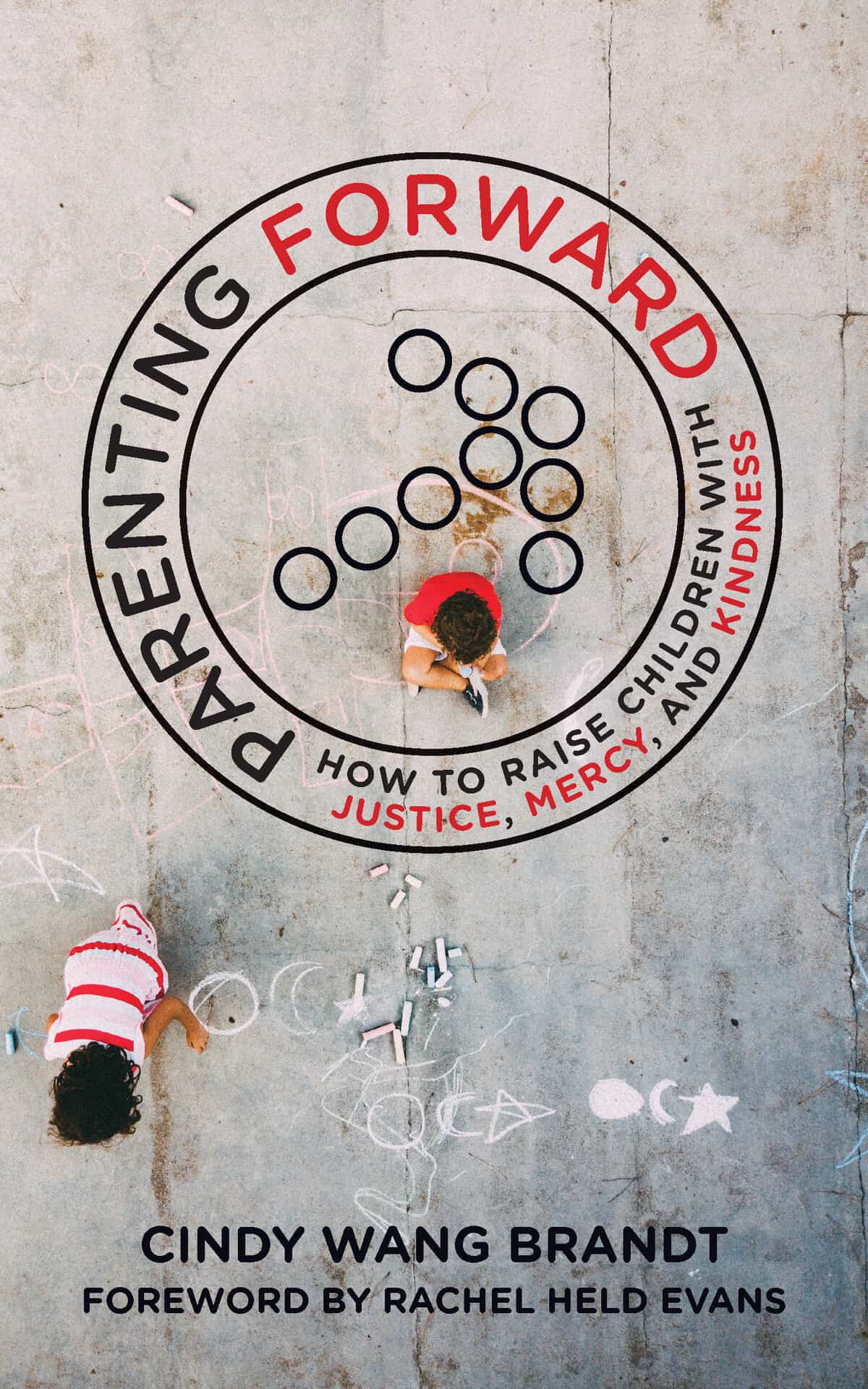
Editor’s Note: This excerpt was originally published in March 2019.
Dishes are an under-discussed topic in parenting books. While others focus on children (not sure why that is), I feel like dishes deserve much more attention simply because of the amount of space they occupy in family life.
This morning, my child brought out six cups from his room. Six. If I’ve done nothing else right in parenting, I can be certain of this: I do a darn good job of hydrating my children. Nightly, I am overwhelmed by the enormous task before me as used plates and serving dishes await on the dinner table while piles of dirtied pots and pans and kitchen gadgets overflow the sink. It feels like an impossible job until it’s done. Every Single Night. And how do I do it? I always start with the smallest dish, the one little measuring cup, or the small sauce bowl. I scrub it, rinse it, place it on the drying rack, and move on to the next small thing.
Our world today feels like the disastrous kitchen after dinner, with messes, stains, and unknown substances caked on walls. As much as I am a progressive, believing the world improves human life over time, it’s undeniable that we are facing some of the most severe crises history has ever seen. Our warming earth threatens us with record-breaking hurricanes, melting ice caps, and the annihilation of species. Social media gives us constant access to the pulse of societal ills, and we collectively feel the throbbing, rapid-fire beat of communities stressed from violence, strife, and tragedies. The news cycle relentlessly vies for our attention, mixing feelings of outrage and despair with no end or escape. Most of us react with instinctive fight-or-flight responses: either resisting every evil and finding ourselves in burnout, or succumbing to paralysis.
But there is another way. Overwhelmed with the bigness of the world’s problems, we can start small. The small measuring cup, the small bowl, the smallest humans. The activists and celebrities are not the ones who effect change in the world. Or rather, I should say, they do it by exerting wide influence on all the ordinary people who are creating real change in their homes, around their dinner tables with their families.
This is how we build a better world: doing one tiny act of love at a time and moving on to the next small, right thing. Bit by bit, we can get the impossible job done by homing in on the small things with the small people.
Throughout Scripture and history, God calls us to care for the small, the oppressed, and the marginalized because it is essential for every person’s rising. Our flourishing individually and as a society is closely linked to our treatment of the vulnerable, and our willingness to give voice to those who have the greatest stake in the fight for equality—our children.
Raising our children with justice for justice means making room for their voices.
Raising our children with justice for justice means making room for their voices. Children are to be seen and heard and invited to participate alongside us in our movements for justice. One illustration for this is Jenny Sowry’s then twenty-two-month-old daughter: she held up a scrap of cardboard covered with crayon scribbles as a protest sign at the Women’s March in Charlotte, North Carolina, in January 2017. Jenny explains that as she, her husband, and their nine-year-old son were working on signs for the protest, they noticed the toddler had taken to expressing herself with the crayons available to her. “We decided that she clearly had something to share and that whatever it was, it meant more to her than anything we might choose on her behalf.” Sure enough, the little girl proudly held up her work at the protest. When a photo of her went viral, the internet bestowed on her the well-deserved title “Woke Baby.”
Some people balk at the idea of bringing young children to protests, claiming it is pushing adult agendas on children who have yet to determine their own causes. But children have historically been a part of the teaching and spreading of values alongside their parents, as at protests, notably in the civil rights movement. It’s a tangible way to demonstrate to children that they have a right and the power to influence the society they live in. What makes the parents of Woke Baby just as woke is that they gave their daughter her own voice, even when that “voice” looked like illegible doodles. Woke Baby is off to a hopeful start in life with parents instilling a strong sense of her autonomy of ideas.
The social justice landscape in which activists and writers like myself operate can quickly become exhausting. From the scale of the problems we confront to the infighting of our various movements, to the rapid pace of changes—learning to sustain ourselves for the long haul is the key to making progress. And the main ingredient for sustainability is none other than hope.
Our hope for the world isn’t just in waiting for the next generation to rise up for change; it is mining for the hope they generously gift us, if only we have the eyes to see and the ears to hear.
Sometimes we are so focused on the potential of children to grow into whatever exciting person they may be that we forget that they already are that person and that their potential may not be lying in the future but embedded within them in the present. Our hope for the world isn’t just in waiting for the next generation to rise up for change; it is mining for the hope they generously gift us, if only we have the eyes to see and the ears to hear. It is never a waste of time or energy to sit in the presence of a child. It is through time with them that we access the wellspring of joy for our flourishing both now and in the future. Let us give to our children so that they might give back, and may the cycle of lovingkindness unfold our world into a more peaceful and just place.
For our children and their children’s children.
Cindy Wang Brandt writes about faith and parenting, miracles in the ordinary, and beauty in the margins, tapping out words from the 33rd floor of a high-rise in Kaohsiung, Taiwan, where she lives with her husband, two children, and a miniature Yorkie. She is the author of Parenting Forward: How to Raise Children with Justice, Mercy, and Kindness, from which this excerpt is taken with permission.
writes about faith and parenting, miracles in the ordinary, and beauty in the margins, tapping out words from the 33rd floor of a high-rise in Kaohsiung, Taiwan, where she lives with her husband, two children, and a miniature Yorkie. She is the author of Parenting Forward: How to Raise Children with Justice, Mercy, and Kindness, from which this excerpt is taken with permission.


